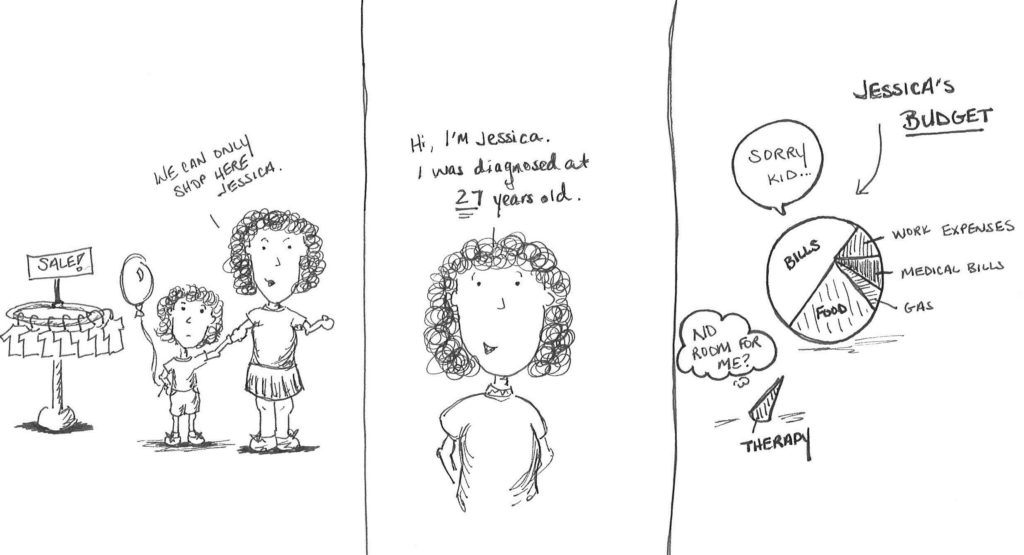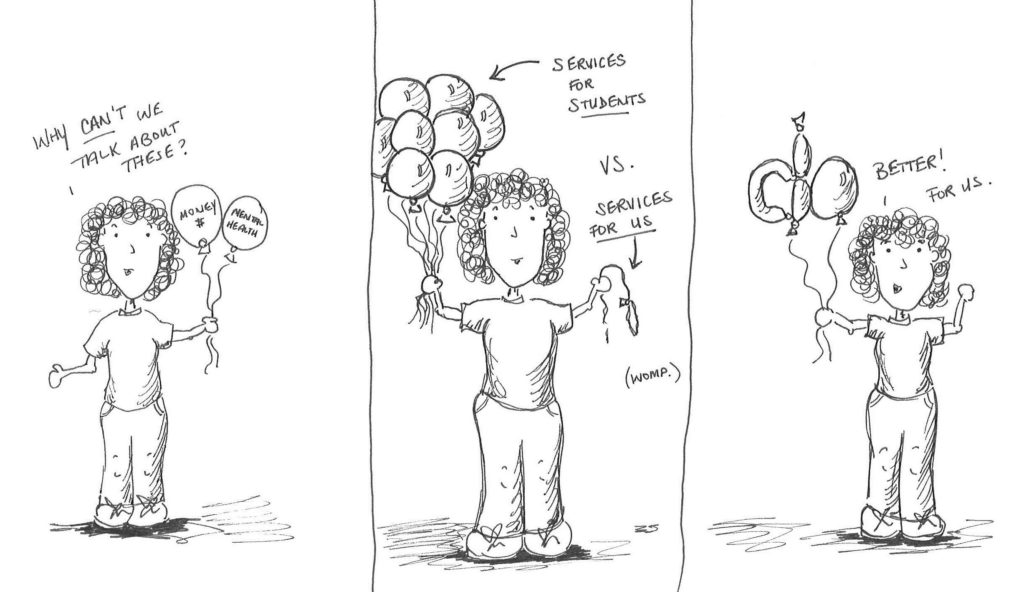by Jessica Fantini
Though my story isn’t pretty, I am more than willing to share it now. I believe with any story you have to start at the beginning; here is a short version of my background so the rest of the story makes a little more sense. I’m the youngest of two in a single parent household. My parents were never married and separated before I was born. I grew up on welfare, and we had Salvation Army Christmases. We were poor. Every time I asked my mother to buy me something, she told me to be patient and wait because maybe we’d be able to get it next time when it was on sale. We struggled as a family to be financially stable for most of my childhood. I thought that a college education was the right choice and that it came with financial stability. I dreamed of the old “rags to riches” story. I was wrong. I know my mother loves me, but she was completely useless when it came to understanding anything about college and the financial responsibility of it. I took out loans upon loans just to afford to go to the school that I picked, and unfortunately I had no guidance on what that would mean in the long run.

What does this have to do with mental health? More than you would think. As an adolescent I had difficulty with depression and anxiety. I never said anything to anyone and wasn’t diagnosed until I told myself enough was enough. I was 27 by the time I was able to allow myself to discuss my issues with my doctor. I had been dealing with my mental health for fifteen years before seeking help. I was 28 when I started blogging and opened up to the public about my mental health. I had gone through different periods of time when things were okay, not okay, and devastating. I also drank to avoid dealing with issues then. Since alcohol is a big thing within student affairs, it was easy to do. Things at work just got worse. I never wanted to get out of bed and go to work. I was sick a lot. It was hard to find energy to make a change so I could get better.
I’ve never wanted to be labeled as weak or as someone with issues. I have issues. I get it. My depression has come and gone over the past year, but because I moved, I haven’t brought it up with my new doctor yet. I want to, but I want to actually find a therapist. I’m just afraid of how much money it will cost me.Before I moved, it was a $25 copay per visit. I couldn’t afford it then so I never went. I still can’t afford it. Instead of thinking the issue with mental health is being brave to own it and speak up about it, I think the issue is sometimes about those who truly can’t afford it. I’ve found my strength in sharing my story and struggle with mental health. I just need to figure out how to afford the help.

How do we help those who need help? I knew going into student affairs would not make me rich. I didn’t enter the field for the money. I’ve always wanted to help people, but helping others doesn’t always allow me to help myself. Although I graduated college – twice – and have a steady job, I’m part of the working poor. I didn’t talk about my mental health because I was afraid. I surely don’t talk about my financial situation, as that, too, is an area of embarrassment for me. I shouldn’t have to feel shame for living paycheck to paycheck, but I’ve found that some people in student affairs can’t fathom why that would be the case. I’ve had people insist that it’s my budgeting skills that are the issue and that it can’t be the salary and benefits of my position. I don’t blame anyone for the decisions I made that got me here, but I also don’t think that it has everything to do with those decisions either. We are the people who are consistently supporting students, giving them resources, and allowing them to find their voice, but what about our colleagues who have similar struggles? Why do we ignore them? Why do we think it can’t happen to us? Something that has stuck with me since grad school was a story from one of my professors who witnessed a shooting of a student – you can learn theory in a classroom, but nothing prepares you for a real life tragedy. We have people on the front lines, and yet some of us have health benefits that don’t cover therapy. Those same people are in positions like mine that may not offer a salary that enables them to cover co-pays for therapy services. We need to do better at offering services as well as educating staff on those services as much as we do for students. I love what I do, but it’s hard. How do we make it easier? How do we offer support and understanding to those who need it? Whose responsibility is it?
Originally posted at the Student Affairs Collective on May 14, 2014.
